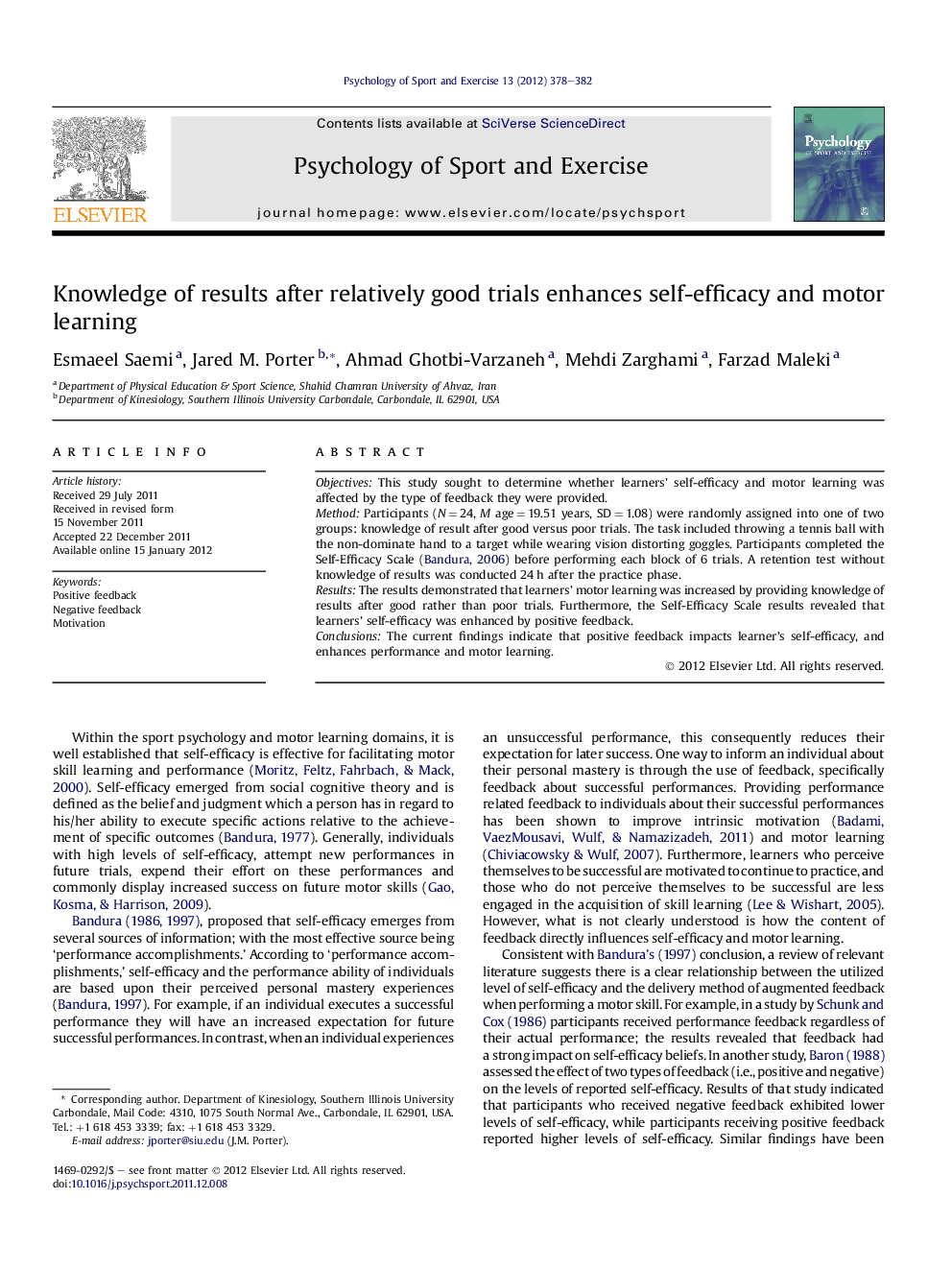| Article ID | Journal | Published Year | Pages | File Type |
|---|---|---|---|---|
| 894737 | Psychology of Sport and Exercise | 2012 | 5 Pages |
ObjectivesThis study sought to determine whether learners’ self-efficacy and motor learning was affected by the type of feedback they were provided.MethodParticipants (N = 24, M age = 19.51 years, SD = 1.08) were randomly assigned into one of two groups: knowledge of result after good versus poor trials. The task included throwing a tennis ball with the non-dominate hand to a target while wearing vision distorting goggles. Participants completed the Self-Efficacy Scale (Bandura, 2006) before performing each block of 6 trials. A retention test without knowledge of results was conducted 24 h after the practice phase.ResultsThe results demonstrated that learners’ motor learning was increased by providing knowledge of results after good rather than poor trials. Furthermore, the Self-Efficacy Scale results revealed that learners’ self-efficacy was enhanced by positive feedback.ConclusionsThe current findings indicate that positive feedback impacts learner’s self-efficacy, and enhances performance and motor learning.
► Increased levels of self-efficacy facilitate motor learning. ► Providing knowledge of results after relatively good trials improves motor learning. ► Negative feedback depresses self-efficacy and motor learning.
